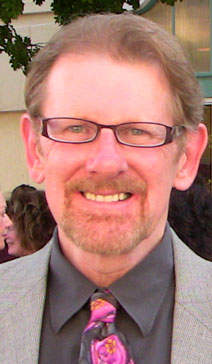
1. What about writing is fun?
Creation, imagination, & words. You get to play at the same time you are working. Sometime, you envision a better world, or ways of seeing it clearer, or living in it better, or moving others to understand or feel something new.
2. At what point do you consider a written piece done?
Never, because if you keep coming back to it, you keep finding things to change. But I stop and move on because there are too many other thoughts waiting to be written. Also, I have a sense of when I’m finished, when I consider how others will respond, how workshoppers will read it, how my favorite aunt would read it.
3. The 'Superman Series' is both playful and thought provoking. What was your inspiration?I love the idea of Superman because it is natural to complicate the lives of Clark Kent and Superman. Both must keep secrets, both have hidden identities, both can be placed in a variety of situations that bring out their personna or make them cover up who they are. I like the tension between human and super human, and between superman and red tape and machinery. I like Clark as a romantic and a nice guy. I also like to consider other superman themes, from Nietsche and Bernard Shaw, for example.
4. Just because I'm a comic book geek, any plans on expanding this creation to the rest of the DC Comics universe?Not likely, although I won’t rule it out. I’m more apt to do more with the original cast, Lois, Jimmy, Perry White, etc. I watch the original tv series with George Reeves, and the movies with Christopher Reeve, and the Lois and Clark and Smallville series now and then for new inspiration. I look for the rediculous in the normal or a superman view of the rediculous.
5. What is your favorite word to use in verse?The. It is specific. Otherwise, I don’t know. I subscribe to the Merriam Dictionary’s word-a-day that arrives in my email, and I only delete them if they are too familiar. I’d love to write a poem with 20 or 30 of these interesting-looking words or mysteriously-sounding words, but I’m afraid you’d need a dictionary to understand the poem. That’s how I first read Joyce’s Ulysses, and that was a chore I wouldn’t ask of another. I like conversational words. I realize that conversational is relative to the discourse communities you live in and around, but I like words that people use when they feel emotion rather than when they think. Emotion is the energy in a poem, and I want listeners and readers to feel it, not look it up. I’ll speak with an education, but not over others’ heads, at least, not intentionally.
6. What poetic/literary/other influences have roots within your repertoire?
I’ve always loved beautiful writing and always loved themes that challenged gravity and accepted limitations. They influence my thinking. The Great Gatsby and short stories by Fitzgerald, Journey to the East by Hesse, Candide by Voltaire, The Stranger by Camus, The Penal Colony by Kafka, The Invisible Man by Elison. In terms of sound, I listen to music every day, both oldies and the newest, everything from classical to hip-hop. I love rhythm, love build-up, love going to the edge without tumbling over. Love the anthems that were meant for stadiums. I’ve written a lot as a pop critic, as a union leader, as a professor. I’ve read a lot through different theoretical lenses. I had some outstanding teachers and students. And of course, you don’t raise two children without absorbing all the “texts” that influence them. All these experiences inform my writing.
7. If you were in a film noir, would you be a hero, a villain, a reporter, or an innocent by-stander?I’d rather be the by-stander who takes it all in and tries to puzzle it together. A few ideals, maybe, but not innocent. I want to stand from a position where the view is unusual, where you see something in the shadows, behind the curtains, details you don’t always see, details that create a subtext.
8. You're a big fan of performing poetry, hosting open mics, organizing larger readings for a particular author or historical figure...what is about reading to a live, larger audience that makes writing grander?
It’s about sharing and supporting each other. I believe in community building. It’s also about making poetry fun, enjoyable, energetic, social, and about getting instant feedback. If you regularly attend local readings, it doesn’t take long until you have a handle on the kinds of poetry others write and present. I respect what others do. I learn from it like everyone else.
9. Write a rhymed line to this completely made up, somewhat unfun, random sentence:The body contains a large amount of bones...but you only need one sample of DNA to produce clones.